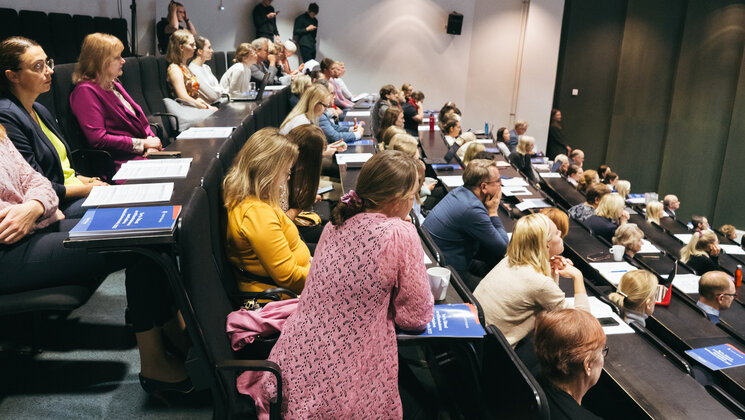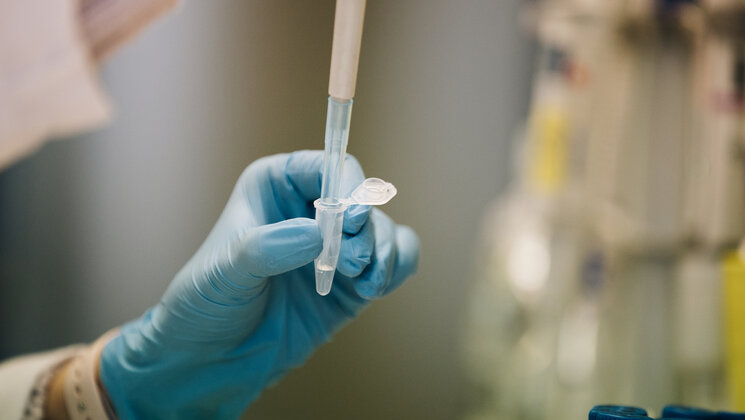-
Faculty of Arts and HumanitiesDean's Office, Faculty of Arts and HumanitiesJakobi 2, r 116-121 51005 Tartu linn, Tartu linn, Tartumaa EST0Institute of History and ArchaeologyJakobi 2 51005 Tartu linn, Tartu linn, Tartumaa EST0Institute of Estonian and General LinguisticsJakobi 2, IV korrus 51005 Tartu linn, Tartu linn, Tartumaa ESTInstitute of Philosophy and SemioticsJakobi 2, III korrus, ruumid 302-337 51005 Tartu linn, Tartu linn, Tartumaa EST0Institute of Cultural ResearchÜlikooli 16 51003 Tartu linn, Tartu linn, Tartumaa EST0Institute of Foreign Languages and CulturesLossi 3 51003 Tartu linn, Tartu linn, Tartumaa EST0School of Theology and Religious StudiesÜlikooli 18 50090 Tartu linn, Tartu linn, Tartumaa EST0Viljandi Culture AcademyPosti 1 71004 Viljandi linn, Viljandimaa EST0Professors emeritus, Faculty of Arts and Humanities0Associate Professors emeritus, Faculty of Arts and Humanities0Faculty of Social SciencesDean's Office, Faculty of Social SciencesLossi 36 51003 Tartu linn, Tartu linn, Tartumaa EST0Institute of EducationJakobi 5 51005 Tartu linn, Tartu linn, Tartumaa EST0Johan Skytte Institute of Political StudiesLossi 36, ruum 301 51003 Tartu linn, Tartu linn, Tartumaa EST0School of Economics and Business AdministrationNarva mnt 18 51009 Tartu linn, Tartu linn, Tartumaa EST0Institute of PsychologyNäituse 2 50409 Tartu linn, Tartu linn, Tartumaa EST0School of LawNäituse 20 - 324 50409 Tartu linn, Tartu linn, Tartumaa EST0Institute of Social StudiesLossi 36 51003 Tartu linn, Tartu linn, Tartumaa EST0Narva CollegeRaekoja plats 2 20307 Narva linn, Ida-Virumaa EST0Pärnu CollegeRingi 35 80012 Pärnu linn, Pärnu linn, Pärnumaa EST0Professors emeritus, Faculty of Social Sciences0associate Professors emeritus, Faculty of Social Sciences0Faculty of MedicineDean's Office, Faculty of MedicineRavila 19 50411 Tartu linn, Tartu linn, Tartumaa ESTInstitute of Biomedicine and Translational MedicineBiomeedikum, Ravila 19 50411 Tartu linn, Tartu linn, Tartumaa ESTInstitute of PharmacyNooruse 1 50411 Tartu linn, Tartu linn, Tartumaa ESTInstitute of DentistryL. Puusepa 1a 50406 Tartu linn, Tartu linn, Tartumaa ESTInstitute of Clinical MedicineL. Puusepa 8 50406 Tartu linn, Tartu linn, Tartumaa ESTInstitute of Family Medicine and Public HealthRavila 19 50411 Tartu linn, Tartu linn, Tartumaa ESTInstitute of Sport Sciences and PhysiotherapyUjula 4 51008 Tartu linn, Tartu linn, Tartumaa ESTprofessors emeritus, Faculty of Medicine0associate Professors emeritus, Faculty of Medicine0Faculty of Science and TechnologyDean's Office, Faculty of Science and TechnologyVanemuise 46 - 208 51003 Tartu linn, Tartu linn, Tartumaa ESTInstitute of Computer ScienceNarva mnt 18 51009 Tartu linn, Tartu linn, Tartumaa ESTInstitute of GenomicsRiia 23b/2 51010 Tartu linn, Tartu linn, Tartumaa ESTEstonian Marine Institute0Institute of PhysicsInstitute of ChemistryRavila 14a 50411 Tartu linn, Tartu linn, Tartumaa ESTInstitute of Mathematics and StatisticsNarva mnt 18 51009 Tartu linn, Tartu linn, Tartumaa EST0Institute of Molecular and Cell BiologyRiia 23, 23b - 134 51010 Tartu linn, Tartu linn, Tartumaa ESTTartu ObservatoryObservatooriumi 1 61602 Tõravere alevik, Nõo vald, Tartumaa EST0Institute of TechnologyNooruse 1 50411 Tartu linn, Tartu linn, Tartumaa ESTInstitute of Ecology and Earth SciencesJ. Liivi tn 2 50409 Tartu linn, Tartu linn, Tartumaa ESTprofessors emeritus, Faculty of Science and Technology0associate Professors emeritus, Faculty of Science and Technology0Area of Academic SecretaryHuman Resources OfficeÜlikooli 18, ruumid 302 ja 304 50090 Tartu linn, Tartu linn, Tartumaa EST0Area of Head of FinanceFinance Office0Area of Director of AdministrationInformation Technology Office0Administrative OfficeÜlikooli 17 (III korrus) 51005 Tartu linn, Tartu linn, Tartumaa EST0Estates Office0Marketing and Communication OfficeÜlikooli 18, ruumid 102, 104, 209, 210 50090 Tartu linn, Tartu linn, Tartumaa EST0Area of Vice Rector for Academic AffairsOffice of Academic AffairsUniversity of Tartu Youth AcademyUppsala 10 51003 Tartu linn, Tartu linn, Tartumaa ESTStudent Union OfficeÜlikooli 18b 51005 Tartu linn, Tartu linn, Tartumaa EST0Centre for Learning and TeachingArea of Vice Rector for ResearchUniversity of Tartu LibraryW. Struve 1 50091 Tartu linn, Tartu linn, Tartumaa ESTGrant OfficeArea of Vice Rector for DevelopmentCentre for Entrepreneurship and InnovationNarva mnt 18 51009 Tartu linn, Tartu linn, Tartumaa EST0University of Tartu Natural History Museum and Botanical GardenVanemuise 46 51003 Tartu linn, Tartu linn, Tartumaa EST0International Cooperation and Protocol Office0University of Tartu MuseumLossi 25 51003 Tartu linn, Tartu linn, Tartumaa EST0Area of RectorRector's Strategy OfficeInternal Audit Office
Research of the Department of Immunology
Our current focus
Our major research interests are directed towards cellular and molecular mechanisms in autoimmune diseases. We are interested in external (enteroviruses) and internal factors (commensal microflora, T cell effector function) that lead to development of autoimmune desctruction of pancreatic beta-cells in type 1 diabetes and latent adult-onset autoimmune diabetes (LADA). Specifically, we like to understand how immunological regulatory mechanisms in intestinal mucosa are involved in the development of autoimmune diabetes. Our research also aims to develop new prognostic, diagnostic and treatment monitoring immunoassays. Important clinical outcome-oriented development is related to fibrin preparations based on salmon blood clotting/coagulation proteins, which can be used as a matrix in new technologies in regenerative medicine and in cell cultures in vitro.
Grants
- Estonian Research Council: Immune mechanisms in adulthood diabetes (GMVBS0377PR, 01.01.2020–31.12.2024)
- European Commission Horizon202: Human Exposomic Determinants of Immune Mediated Diseases (MMVBS20017R, 01.01.2020–31.12.2024)
Current collaborations
In Estonia: Faculty of Science and Technology, Department of Pharmacy, Department of Pediatrics, Department of Internal Medicine, Department of Surgery, Department of Obstetrics and Gynecology of the Unversity of Tartu, United Laboratories of Tartu University Hospital.
East-Tallinn Central Hospital, West Tallinn Central Hospital, Tallinn Children's Hospital, Kuressaare Hospital
International: Universities of Helsinki (prof. M. Knip), Tampere (prof. H. Hyöty) ja Turku (prof. J. Ilonen, prof. R. Lahesmaa); University of Heidelberg (prof. T. Giese); Pennsylvania University (prof. P. Janmey); IRCCS San Raffaele Scientific Institute (dr. V. Lampasona); European Autoimmunity Standardization Initiative (EASI team, Dr Jan Damoiseaux, Maastricht UMC); European B Cell Network (prof. H. Jäck, Erlangen).
Enterprices: Thermo Fisher Diagnostics, Immunotron OÜ, Icosagen OÜ.
Biobanks
In cooperation with Estonian medical insitutions we have collected various clinical data and biomaterial.
The five most important scientific articles in the last five years
- Tagoma A, Haller-Kikkatalo K, Oras A, Roos K, Kirss A, Uibo R (2022): Plasma cytokines during pregnancy provide insight into the risk for diabetes development in the gestational diabetes risk group. J Diabetes Investig 13: 1596-1606.
- Mustonen N, Siljander H, Peet A, Tillmann V, Härkönen T, Niemelä O, Uibo R, Ilonen J, Knip M DIABIMMUNE Study Group (2020): Coeliac disease and HLA-conferred susceptibility to autoimmunity are associated with IgE sensitization in young children. Allergy 75: 692-694.
- Oras A, Peet A, Giese T, Tillmann V, Uibo R (2019): A study of 51 subtypes of peripheral blood immune cells in newly diagnosed young type 1 diabetes patients. Clin. Exp. Immunol 198: 57-70.
- Vorobjova T, Tagoma A, Oras A, Alnek K, Kisand K, Talja I, Uibo O, Uibo R (2019): Celiac disease in children, particularly with accompanying T1D, is characterized by substantial changes in the blood cytokine balance, which may be related to the inflammatory processes occurring in the small intestinal mucosa. J Immunol Res 6179243.
- Laidmäe I, Erglis K, Cebers A, Janmey PA, Uibo R (2018): Salmon fibrinogen and chitosan scaffold for tissue engineering: in vitro and in vivo evaluation. J Mat Sci: Mat Med 29: 182.

Career conference „To new hights with a PhD degree!“

Call for abstracts: scientific conference celebrating the anniversary of the Faculty of Medicine

